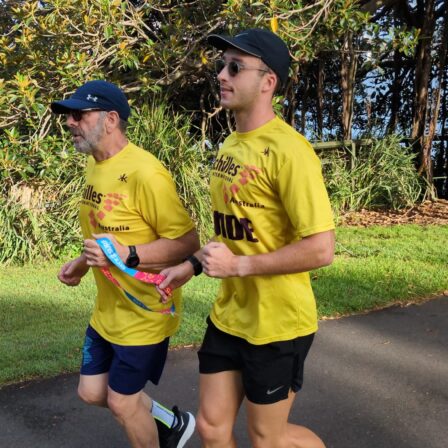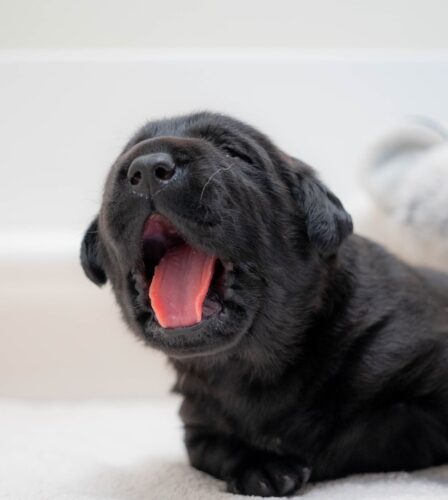News
Focus on the aged care services industry

How do you feel your role helps elderly people?
I love working with elderly people. I enjoy chatting with them, seeing how they are going and using my knowledge to help them remain independent and maintain a safe environment around them. I also enjoy helping them to maximise their existing eyesight that they thought they had lost. For example, the excitement I see when they can see photos of their grandchildren again. I will for example suggest tools that magnify images so they can once again see photos of their family growing up.
I also enjoy helping elderly people with reading and writing so they can once again participate and enjoy the hobbies they love.
What is your fondest memory of helping an elderly person with age related low vision?
I have a client who is a full time carer for her husband who has dementia. She was been diagnosed with Age Related Macular Degeneration and started to lose her sight. I suggested an electronic magnifier, and the moment she experienced what the magnifier did, she lit up and was very excited about all the possibilities.

For example, she was once again was able to go to the supermarket on her own without her daughter’s assistance as she could use the magnifier to see product and shelf labels. She is such a sweet lady who I am proud to say has regained her confidence and is enjoying being independent again.
From your perspective what is important to consider when it comes to low vision and Australia’s ageing population?
It is important to create awareness among the aging population. For example, glaucoma is a common eye condition that has no symptoms and by the time you see the signs, it is too late. A multidisciplinary approach such as seeing an optometrist for a yearly eye check to pick up any issues early so it can be managed before it gets worse is critical. It is important to understand that one day your vision could be okay and the next not, so early detection is essential.
Can you recommend some tips and tricks for someone who is starting to experience low vision, so they can maximise their existing vision?
Visit an optometrist regularly as a pair of glasses may change or significantly improve your vision. Another tip is to make sure you have good lighting around the home. For example, a good desk lamp where you read can make a big difference.
If you are still needing assistance reach out to the Guide Dogs Low Vision Clinic. The specialists at the clinic will assist clients by offering an individualised approach, as each person will have differing issues.
Could you take me through what happens when a client visits the Guide Dogs Low Vision Clinic?
Initially an appointment is made with the Guide dogs. This can be either by you reaching out to us directly or a healthcare professional may refer you.
We will then arrange a time to speak to you over the phone to gather information and arrange a time to either come out to you or for you to visit the Low Vision Clinic.
During your appointment you be assessed and we will take the time to understand what you need help with. This could include needing help with cooking and reading.

Where needed we will refer you to a specialists for further assessment or any Guide Dog services that may be relevant.
We also take the time to talk about how to source funding where possible for any tools or services the client requires. We look at if a client is eligible to source funding via the NDIS if they are under the age of 65 or My Aged Care – Commonwealth Home Support Programme if they are over the age of 65 years of age. Other funding options can include Enable NSW or Department of Veteran Affairs.
How do you feel the Guide Dogs service offering can help elderly people live an independent and fulfilling life?
Guide Dogs offer the option to visit a client’s home, this is especially the case if the client is elderly and is already experiencing vision issues and finds it difficult to get around due to their low vision.
Guide Dogs take the time to identify what vision issues the client is dealing with and where they need help. We take a multidisciplinary approach by focusing on the mix of services the client requires. For example, suggested services could be Orientation & Mobility which could include techniques to help the client to get out and about, Assistive Technology which could include the use of technology to make life easier for the client, or Occupation Therapy which could include techniques that can be used to ensure the clients can continue to cook safety in their home environment, and do daily tasks so they can maintain their independence.

What do you recommend someone does if they notice a friend or family member is starting to struggle with their vision or have noticed changes?
If you notice a family member or friend struggling with their vision or have noticed changes, it is important they seek treatment ASAP.
Make an appointment with an optometrist who will then be able to refer to a specialist such as an ophthalmologists, or to a vision services clinic such as the Guide Dogs Low Vision service where they can receive the help they need and offered solutions to overcome their low vision issue.
Click here for more information on our low vision services.






